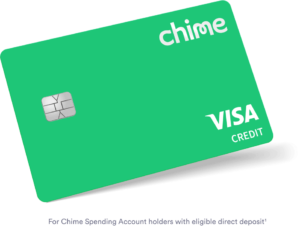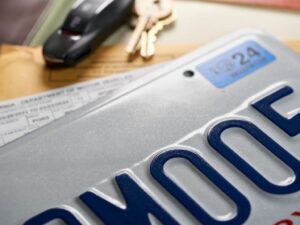Paying tolls while driving can be confusing, especially if you are unfamiliar with the available payment methods and processes. With the rise of electronic tolling and open road tolling, paying tolls has become faster and more convenient. However, not all toll plazas and toll booths accept the same forms of toll payment.
While some toll roads accept credit cards directly at staffed booths, it’s not consistent across all toll plazas. Most toll roads have shifted to electronic collection methods such as E-ZPass, SunPass, and FasTrak which require pre-paid accounts linked to a credit card. Alternatively, drivers can use mobile payment apps or online payments for cashless transactions.
It’s important to understand what payment types are typically accepted, as well as alternatives in case you arrive at a toll plaza unprepared. This article will explain the most common ways to pay toll fares and help you avoid fines for non-payment.

How Do Tolls Work?
Toll roads, toll bridges, and toll tunnels collect fees from drivers to generate revenue for construction, maintenance, and operation. Historically, you would stop at a toll booth and hand cash to a toll collector. Today, many toll roads utilize electronic toll collection (ETC) systems that deduct payments automatically using a transponder or license plate recognition.
With open road tolling or express tolling, ETC readers are positioned over lanes so vehicles can continue moving at highway speeds. This barrier-free tolling increases traffic flow and reduces congestion compared to stopping at toll plazas.
Do All Tolls Accept Credit Cards?
While most toll roads have shifted to electronic collection methods, not all accept credit cards directly. Popular ETC systems like E-ZPass, SunPass and FasTrak require pre-paid accounts linked to a credit card. The prepaid toll account is debited as you pass through toll booths.
Some toll roads have card readers at staffed booths, but it’s inconsistent. For example, less than half of all Florida’s Turnpike plazas accept credit cards. Always check signs and toll agency websites when planning trips to understand accepted toll payments.
What Other Payment Methods Are Accepted at Tolls?
If you don’t have an electronic transponder or want to pay cash, here are other options for paying toll fares:
1. Cash
Paying tolls with cash is still possible at most staffed toll booths. However, exact change is usually required, and receipts aren’t always provided. Carrying sufficient small bills ensures you can pay the published toll fare amounts.
Cash payments are not possible on toll roads with open road tolling where no booths exist. Running a cash-only toll will result in a toll violation notice and fine.
2. Electronic Toll Collection Systems (E-ZPass, SunPass, etc.)
E-ZPass, SunPass, FasTrak, and other toll transponders let you pre-pay toll fares and associate the cost with your account when passing through automated toll booths. These radio-frequency identification (RFID) devices are mounted on your windshield and communicate with overhead readers.
Most systems offer volume discounts, multi-state coverage, and online account management. You can register a credit card to automatically re-load when your prepaid account balance gets low.
3. Pay by Plate
In open road tolling zones without traditional toll booths, many toll agencies use automatic license plate recognition systems to identify vehicles and send a bill by mail.
You’ll have a grace period to pay the toll fare online or by phone before late fees or toll violations are assessed. Pay-by-plate processing does incur administrative costs, so toll fares are higher than electronic collection.
4. Prepaid Toll Accounts
If you frequently travel certain toll roads, consider opening a dedicated prepaid account even without a transponder. Prepaid accounts let you electronically pay toll fares using your license plate number at a discounted rate.
You can fund the account with a credit card or debit card and manage it online through the toll operator’s website or mobile app. Toll account balances are drawn down as you incur tolls during travel.
5. Mobile Payment Apps
Major toll agencies have released mobile apps allowing cashless toll payments. For example, the mySunPass app lets you pay Florida tolls using your smartphone without pre-registration.
Similar apps exist for E-ZPass, TxTag, and others. The toll is charged instantly to your credit card or debit card on file. However, mobile pay may have higher fees or limited road coverage.
6. Online Payments
If you receive a toll violation or invoice by mail, you can pay the toll faredirectly online through the toll agency’s website. Search for the relevant toll operator based on where you traveled.
In most cases, you will need the toll invoice number and license plate details. Payment is typically accepted by credit card, debit card, or electronic check. Pay promptly to avoid late fees or civil penalties.
What Happens If You Don’t Have Cash or a Credit Card at a Toll Booth?
If you arrive at a toll booth unprepared for the posted toll fare, the attendant may record your license plate and direct you to pull aside. You will need to provide a valid address to mail an invoice for immediate online payment.
Refusing to pay the toll or leaving without providing license and contact information can result in a toll violation citation carrying larger fines and fees. Some agencies may also have agreements with law enforcement in extreme cases.
Can You Pay Tolls with Debit Cards?
Debit cards can be used to pay tolls in most cases. When linked to prepaid accounts like E-ZPass or SunPass, the system will debit straight from your checking account balance when you pass through the toll.
Debit cards are also accepted online or through most toll agency mobile apps. Using a debit card allows cashless payment without accruing credit cardinterest or fees. Just be aware of your account balance to avoid overdrafts.
Are There Any Fees for Using Credit Cards at Tolls?
Paying tolls directly with a credit card at a staffed toll booth does not incur extra processing fees in most cases. However, using a credit card to re-load your prepaid account balance may have an associated service charge.
Some toll agencies also charge a statement processing fee added to invoices for license plate or mobile device toll payments charged to a credit card. The fee helps offset merchant transaction costs but can add up, so review billing terms.
What Should International Travelers Know About Paying Tolls in the U.S.?
Drivers from other countries may not be familiar with U.S. toll roads. Most toll highways and bridges have signs indicating electronic or cash payment options well in advance. If renting a vehicle, ask if it has an ETC tag you can use.
Some toll operators allow international travelers to create temporary prepaid accounts. You can also pay cash if possible or request invoices by mail. Make sure the rental agency has your travel details to avoid violations.
How to Avoid Toll Booths and Fees When Traveling
If you want to minimize toll expenses on road trips, plan routes avoiding major toll highways whenever reasonable. Mapping apps like Google Maps allow you to select avoidance of tolls.
At toll intersections, look for bypass routes if possible. Some toll agencies offer toll exemptions with restrictions like having a transponder, traveling at certain times, or meeting occupancy requirements. Check policies for any available toll discounts or credits.
Conclusion
Understanding toll policies prepares you for smooth travels and avoiding unnecessary fees. With more toll roads using cashless electronic toll collection, having a prepaid ETC account linked to your credit or debit card is the most convenient option. Always know your payment alternatives in case your toll account balance runs low or non-toll routes exist.






